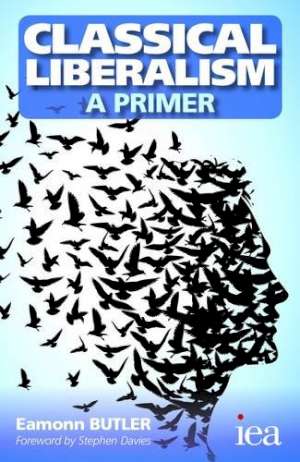28 September 2015
Classical Liberalism: A primer
Eamonn Butler
2015, Institute for Economic Affairs, 132 pages, £10.00
ISBN 9780255367073
Reviewer: Diane Coyle, Enlightenment Economics & University of Manchester

This short book is dedicated to the memory of John Blundell, the director of the IEA for 16 years from 1993, who died at the relatively young age of 61 in 2014. It is a suitable tribute to someone who was more ardent and consistent in his commitment to freedom in the domain of economics than even Mrs Thatcher. He helped the IEA thrive as a think tank dedicated to free markets but above all as a forum for economic debate.
Classical liberalism is a philosophy of crucial importance for economics, given how firmly the subject’s intellectual roots lie in the work of thinkers such as Locke, Smith, Bastiat, and Mill. The book extends the lineage to include Friedrich Hayek and Ayn Rand, Isaiah Berlin and Robert Nozick, Milton Friedman and James Buchanan.
This book, written by the director of the Adam Smith Institute, covers the classic arguments for freedom, and describes how these manifest themselves in the domains of morality, politics, society and economics. The respective chapters cover briefly subjects such as the purpose of government, the social contract, natural rights, and spontaneous order in society or in markets. For example, on the idea of the social contract, the book sets out the concept clearly, highlights the major thinkers who have developed the idea, and gives a clear (and IEA-friendly) verdict: “Social contract theory tries to identify the rational basis for government. But in reality life is not so neat. We are social creatures but we have many conflicting views on what might constitute a good society – no ‘rational agreement’ seems possible. And when anyone has tried to create a supposedly ‘rational’ society, the result is always disaster.”
This would be a very useful book for a young person studying politics or economics and new to these ideas and thinkers, or for an older person in need of a refresher or indeed looking for an introduction themselves. It has a useful timeline and describes key thinkers. My one complaint would be that the further reading bibliography is limited in only citing books with the same perspective as the author; it would have been more useful and more open-minded to have included some books that take a different perspective.
